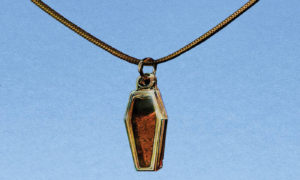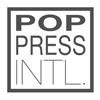 The sun peeks over the desert horizon with soft yellow blinks and floods a tiny Mexican bar where a disheveled drunk sways, shirttails untucked, shuffling on a concrete floor, mumbling a mournful and weepy prayer as his head rests on the bare, sweaty shoulder of a beautiful Hispanic woman. At least that’s what most of Phosphoresent’s Muchacho sounds like to me. That’s not the whole story, because somewhere nearby, the coolness of an electronic oasis rests in the dreamy mind of our drunken hero.
The sun peeks over the desert horizon with soft yellow blinks and floods a tiny Mexican bar where a disheveled drunk sways, shirttails untucked, shuffling on a concrete floor, mumbling a mournful and weepy prayer as his head rests on the bare, sweaty shoulder of a beautiful Hispanic woman. At least that’s what most of Phosphoresent’s Muchacho sounds like to me. That’s not the whole story, because somewhere nearby, the coolness of an electronic oasis rests in the dreamy mind of our drunken hero.
At the forefront of Phosphorescent is songwriter Matthew Houck, who on Muchacho has created his most ambitious, accomplished, and multi-textured album to date. For this album, Houck has said that the songs came in fragments only after checking out of his life, in fact, out of American life for a while and hiding away in a small Mexican town in response to a particularly conflicted time.
(After reading back over my post and initial reaction to the album’s announcement, I don’t know that there’s a point in rephrasing, so sections from that post appear here in italics.) I’ve been a Phosphorescent fan since I first heard “Salt and Blues,” the first track on their debut LP. It has been a great pleasure to watch the band change and evolve over the years, through more raucous folk rock, laid back Americana, and homages to country legends. I even had the privilege of having the band perform at my previous online mag’s SXSW day party one year.
After beginning with a digitally flourished hymn of invocation to the sun, Muchacho delivers the excellent and epic “Song for Zula.” It’s the album’s first single and immediately reveals that Phosphorescent has retained their Americana leanings while branching out by the implementation of electronic sounds and textures. Lyrically, the song follows tendencies familiar to primary creative force Matthew Houck. Beginning with a lyrical sample of Johnny Cash’s “Ring of Fire,” Houck gives the sentiment new immediacy with his own meditation on the burn of love. Houck plays on the traditional format of the murder ballad, ending the song with the claim, “ I could kill you with my bare hands if I was free.” We are left to wonder if this freedom sought is mental or physical, but each possibility hints at its own dark story as the ambiguity adds to the song’s richness. This song showcases all of the reasons I’ve loved Phosphorescent from the beginning; it’s an artist’s masterful rendering of lyricism and musicianship communicated through a distinct vision.
From there, Houck moves into the distorted guitars and hand-clapping folk-funk of “Ride On / Right On.” With its dance-inducing beat and Houck’s hoops and hollers, the track is one of the album’s most overtly fun and joyful. The meat of the album is the series of country rock songs that occupy most of the album’s middle ground, each as solid as the one before. “Terror in the Canyons (The Wounded Master)” features excellent vocal climbs and “A Charm / A Blade” hinges on a raucous chorus, but “Muchacho’s Tune” might be the best with it’s galloping bass and meandering piano.
Most importantly, throughout these songs, Houck flexes his literary muscles, consistently delivering masterfully written lines like these:
“I found some fortune, found some fame
I found they cauterized my veins
Hey, I’ve been fucked up. And I’ve been a fool
But like the shepherd to the lamb
Like the wave unto the sand
I’ll fix myself up to come and be with you
See I was slow to understand
This river’s bigger than I am
It’s running faster than I can
Tho, Lord, I tried
Between the shadow and the storm
A little pup was being born
A little whelp without his horns
O my, O my”
Just when you think that’s all the greatness they could have in them, Phosphorescent unfurls the sprawling “The Quotidian Beasts,” which includes plenty of wailing over expansive country rock. This is followed by brassy country ballad “Down to Go” and contains excellent lyrics such as “You say, ‘Oh, you’ll spin this heartache into gold,’” which operates as a new angle on Neil Young’s classic lyric.
The album closes in bookend fashion with another lifting hymn-like song that celebrates the merits of taking things easy. Houck sings, “As dark as I been, well. Eas. Easy oh.” It’s a universal principle we could all heed in our moments of darkness. As for Houck, his taking it easy has resulted in one of the year’s and his own best albums.









